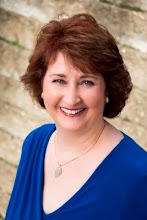To learn more about Rosemary's work please click on the cover.
Best remembered for her hero, Percy Blakeney, the elusive scarlet pimpernel, Baroness Orczy was born in Tarna Ors, Hungary, on September twenty-third, eighteen hundred and sixty-five to Countess Emma Wass and her Baron Felix Orczy. Her parents frequented the magnificent court of the Austrian Hungarian Empire where the baron was well known as a composer, conductor and friend of famous composers such as Liszt and Wagner.
Until the age of five, when a mob of peasants fired the barn, stables and fields destroying the crops, Emma Magdolna Rozália Mária Jozefa Borbála “Emmuska” Orczy, enjoyed every luxury in her father’s magnificent, ancestral chateaux, which she later described as a rambling farmhouse on the banks of the River Tarna. The baron and his family lived there in magnificent ‘medieval style’. Throughout her life; the exuberant parties, the dancing and the haunting gypsy music lived on in Emmuska’s memory.
After leaving Tarna Ors forever, the Orczys went to Budapest. Subsequently, in fear of a national uprising, the baron moved his family from Hungary to Belgium. Emmuska attended convent schools in Brussels and Paris until, in 1880, the baron settled his family in Wimpole Street, London.
At fifteen years of age, Emmuska not only learned English within six months, but also won a special prize for doing so. Later, she first attended the West London School of Art and then Heatherby’s School of Art, where she met her future husband, Montague Barstow, an illustrator.
Emmuska fell in love with England and regarded it as her spiritual birthplace, her true home. When people referred to her as a foreigner, and said there was nothing English about her, she replied her love was all English, for she loved the country.
Baron Orczy tried hard to develop his daughter’s musical talent but Emmuska chose art, and had the satisfaction of her work being exhibited at The Royal Academy. Later, she turned to writing.
In 1894 Emmuska married Montague and, in her own words, the marriage was ‘happy and joyful’.
The newlyweds enjoyed opera, art exhibitions, concerts and the theatre. Emmuska’s bridegroom was supportive of her and encouraged her to write. In 1895 her translations of Old Hungarian Fairy Tales: The Enchanted Cat, Fairyland’s Beauty and Uletka and The White Lizard, edited with Montague’s help, were published.
Inspired by thrillers she watched on stage, Emmuska wrote mystery and detective stories. The first featured The Old Man in the Corner. For the generous payment of sixty pounds the Royal Magazine published it in 1901. Her stories were an instant hit. Yet, although the public could not get enough of them, she remained dissatisfied.
In her autobiography Emmuska wrote: ‘I felt inside my heart a kind of stirring that the writing of sensational stuff for magazines would not and should not, be the end and aim of my ambition. I wanted to do something more than that. Something big.’
Montague and Emmuska spent 1900 in Paris that, in her ears, echoed with the violence of the French Revolution. Surely, she had found the setting for a magnificent hero to champion the victims of “The Terror”. Unexpectedly, after she and her husband returned to England, it was while waiting for the train that Emmuska saw her most famous hero, Sir Percival Blakeney, dressed in exquisite clothes. She noted the monocle held up in his slender hand, heard both his lazy drawl and his quaint laugh. Emmuska told her husband about the incident and within five weeks had written The Scarlet Pimpernel.
Often, although the first did not apply to Emmuska and Montague, it is as difficult to find true love as it is to get published. A dozen publishers or more rejected The Scarlet Pimpernel. The publishing houses wanted modern, true-life novels. The Scarlet Pimpernel was rejected. Undeterred Emmuska and Montague turned the novel into a play.
The critics did not care for the play, which opened at the New Theatre, London in 1904, but the audiences loved it and it ran for 2,000 performances. As a result, The Scarlet Pimpernel was published and became the blockbuster of its era making it possible for Emmuska and Montague to live in an estate in Kent, have a bustling London home and buy a luxurious villa in Monte Carlo.
A lasting tribute to the baroness is the enduring affection the public has for her brave, romantic hero, Sir Percival Blakeney, master of disguise.
Classic Historical Romances by Rosemary Morris
Early 18th Century novels: Tangled Love, Far Beyond Rubies, The Captain and The Countess
Regency Novels False Pretences.
Heroines Born on Different Days of the Week Books One to Six, Sunday’s Child, Monday’s Child, Tuesday’s Child, Wednesday’s Child, Thursday’s Child and Friday’s Child.
(The novels in the series are not dependent on each other, although events in previous novels are referred to and characters reappear.)
Mediaeval Novel Yvonne Lady of Cassio. The Lovages of Cassio Book One
www.rosemarymorris.co.uk
http://bookswelove.net/authors/morris-rosemary


































